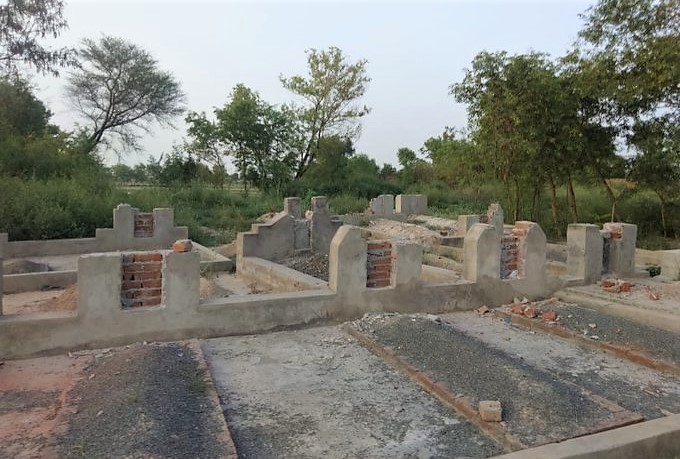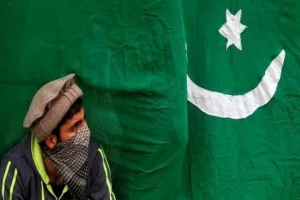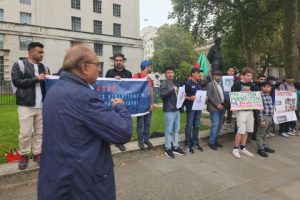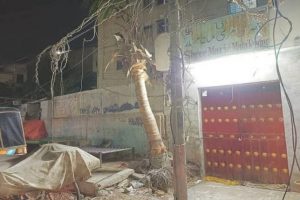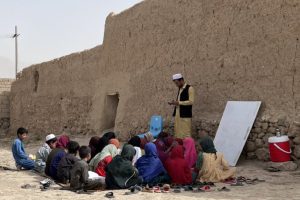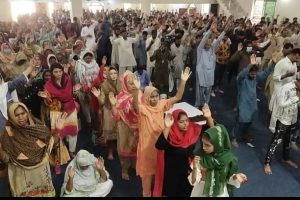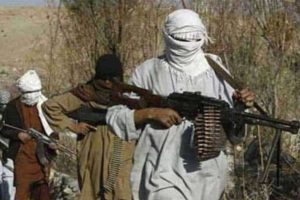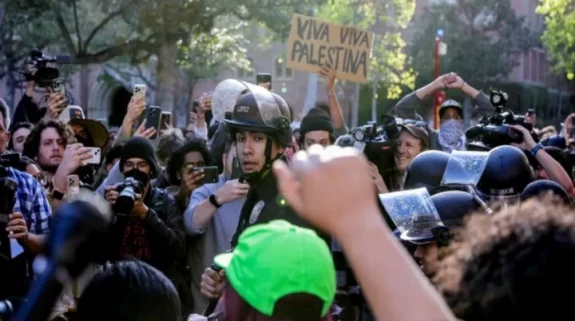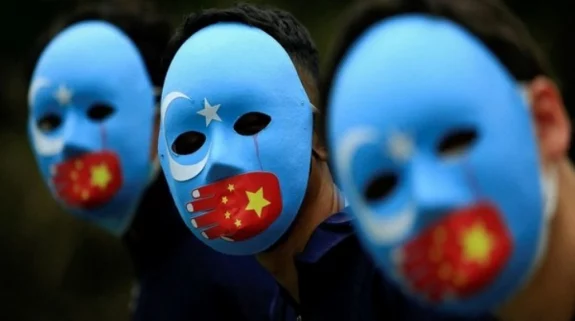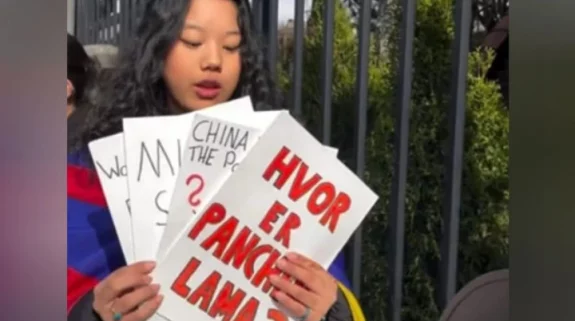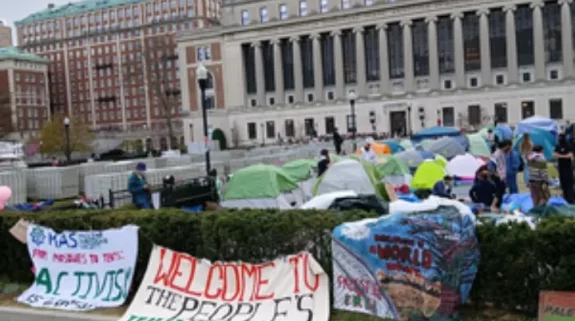Even as an angry Pakistan and a furious Prime Minister Shehbaz Sharif hold a day of protests today against the burning of the Quran in Sweden last week by an Iraqi refugee, the minorities in Pakistan quake in fear.
All of Pakistan – radical groups, terror organisations and the ruling political party, united against the burning of a Quran in far-away Sweden during a week that saw the killing of a Christian woman for refusing to convert to Islam; kidnapping of minor Hindu girls for marriage to old Muslim men and the arrests of Ahmadiyya Muslims for celebrating Eid and, in the latest, an attack on their mosque.
پاکستان دراوڑ اتحاد نے سندہ اسیمبلی کے سامنے ہزارون لوگ جمع کرکے ایک تاریخ رقم کردی ہے سندہ پاکستان مین یہ پھلی مرتبہ ایسا ہوئا ہے کہ سندہی ھندو اپنی بچیون کے اغوا مذھب تبدیلی ظلم ناانصافیون کے خلاف اپنے حقوق کے کے لیے ھزارون کی تعداد مین سندہ اسیمبلی کے سامنے سراپا احتجاج بنے pic.twitter.com/y0pXWbKiE3
— Pakistan Darawer itehad (@PItehad) April 5, 2023
In the latest faith-based crime against minorities in Pakistan, a mob of Sunni majoritarian Muslims halted the construction of an Ahmadiyya place of worship, called the Baitul Zikr, in Sanghar in Sindh. The local police helped the radicals in sealing their place of worship. However, this is not a rare or one of those freak incidents of sectarian hate.
Only a few days earlier, men of the community had been arrested by the Pakistani Punjab police for celebrating the Muslim festival of Eid. This time it was the radical outfit Tehreek-e-Labbaik Pakistan (TLP) which asked the police to ensure that the Ahmadiyyas do not celebrate Eid as the community is considered to be non-Muslim.
Soon enough, the local police went house to house searching for Ahmadiyyas who might have offered sacrifice on Eid. The Punjab police not only arrested community members for celebrating their festival but even confiscated their slaughtered animals and animal parts.
In Sindh – which is globally notorious for its assaults on minor girls through rapes, kidnappings, conversions and marriages to old Muslim men, the construction of the Ahmadi Baitul Zikr ignited anger among the local Sunnis because the place of worship included a minaret – a feature of all mosques cutting across the numerous Muslim sects. On Wednesday, a radical mob surrounded the building after which the police sealed the Ahmadi mosque.
The TLP, a conservative religious-political outfit, gained considerable strength and showed its communal muscle during former prime minister Imran Khan’s time. After the fall of the Imran Khan government, the TLP threw its weight around to ensure that the Shehbaz Sharif government further strengthened Pakistan’s dreaded blasphemy laws.
Besides the radical outfits targeting the Ahmadiyyas, the Pakistan government too has left no stone unturned in ensuring that the community is ostracised.
The Voice PK news website says that Article 298-B of the Pakistani Constitution restricts the Ahmadiyya community from referring to their place of worship as a “masjid”. The constitution also provides for imprisonment and fines if the community members call their place of worship a mosque or a masjid. Under pressure, the Ahmadiyyas have begun calling their mosques, “Baitul Zikr” which translates into ‘a place of contemplation’.
Since 1984, community members say that Sunni mobs have destroyed 31 places of worship of the Ahmadiyya community and got the local administration to seal another 44 properties. Hundreds of Ahmadis have been killed for practicing their Muslim faith in Pakistan.
In the Islamic Republic of Pakistan, which hosts a fast-diminishing minority population from the Hindu, Sikh, Christian and Buddhist faiths, hate and intolerance has arisen to alarming levels. Besides the faith-based groups that are under attack by Sunni majoritarian governments, even ethnic groups like the Baloch, Sindhis and Hazaras complain of atrocities like forced kidnappings, torture and extra-judicial killings.
Steadily, Pakistan’s governments and generals have ensured over decades by stooping to unreasonable demands from the Muslim radical majority that they widen the circle of hate by including sects like Shias and Ahmaddiyas for institutional discrimination and social intolerance.






